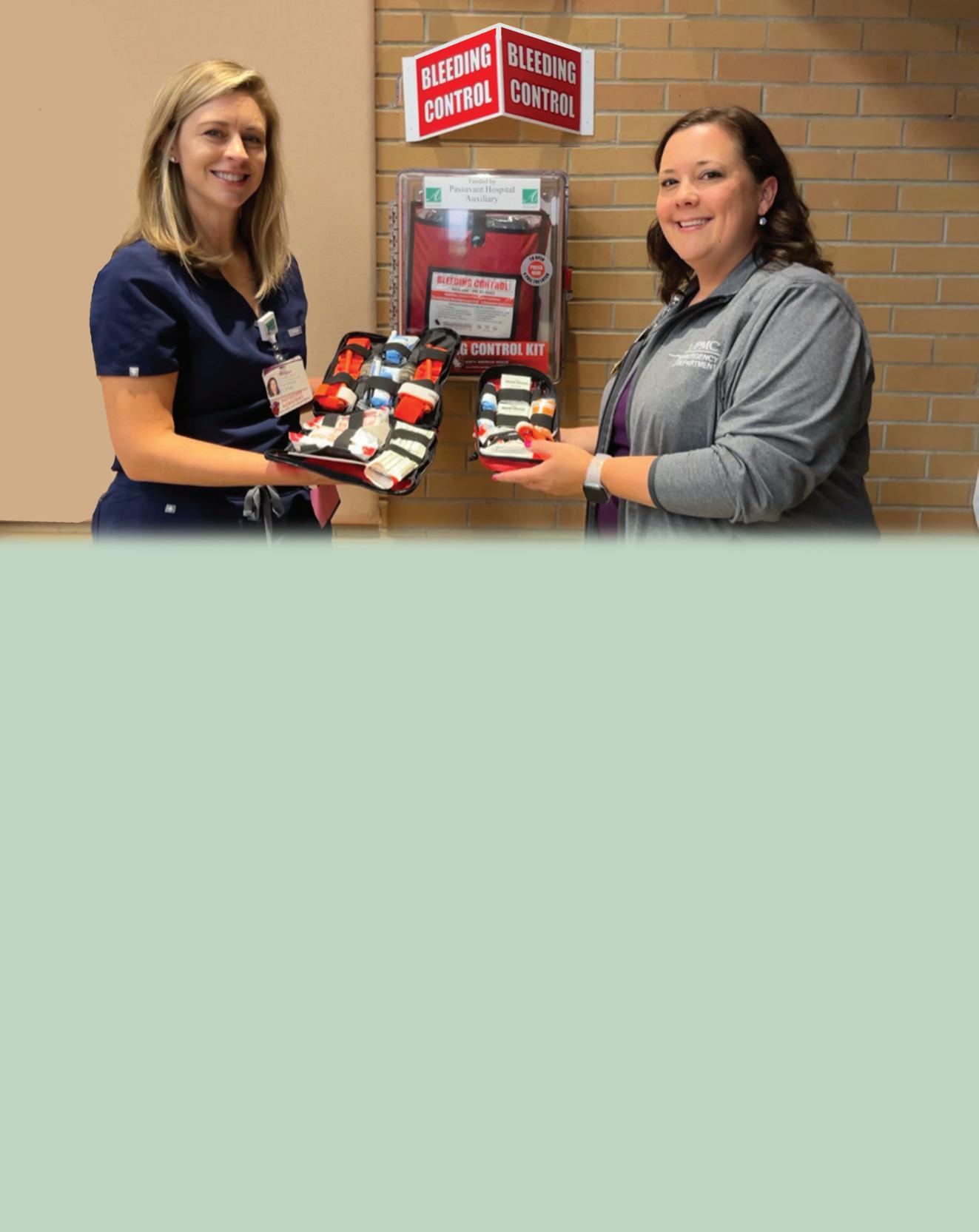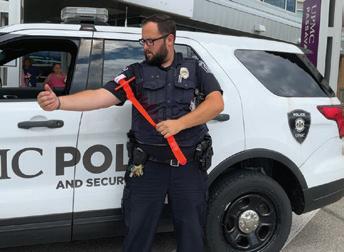
2 minute read
Passavant Hospital Auxiliary provides life-saving grant to control traumatic bleeding
In 1972, the American Heart Association launched its first mass citizen training in Cardiopulmonary Resuscitation, or CPR — an emergency life-saving procedure performed when the heart stops beating. The goal of this training was to increase the survival rate from cardiac arrest outside of a hospital setting. The result? The use of immediate CPR was able to double or triple the chances of survival.
Similar to how CPR prepared bystanders for a cardiac emergency, a new movement, called Stop the Bleed®, or STB, aims to train non-medical personnel in methods that control traumatic bleeding.
“An adult can bleed to death in three to five minutes,” said Megan Tomaino, MPAS, PA-C, a physician assistant, certified, at UPMC Passavant.
“Essentially, STB is about training everyone to help a victim buy time until help arrives in the form of EMS (in the community) or the Rapid Response Team (in the hospital),” said Betsy Tedesco, DNP, RN, CEN, NEA-BC, PHRN, clinical director of emergency services at UPMC Passavant. “With traumatic bleeding, time is crucial. So, if we can intervene quickly with the first person encountering the victim, we can save a life.”
The bleeding control techniques taught through STB include the use of a tourniquet, as well as applying direct pressure to the wound and packing the wound with gauze.
Traumatic bleeding injuries are not uncommon. “People suffer massive bleeding from car accidents, pedestrian accidents, work-related accidents, home accidents involving knives or power tools, and recreational activities, just to mention a few,” Megan said.
Megan recently submitted a grant request to the Passavant Hospital Auxiliary to provide STB equipment for UPMC Passavant, opportunities to train hospital staff, and the opportunity to develop a community-based training program. The Passavant Hospital Auxiliary, which funded the grant, is an arm of Passavant Hospital Foundation. With the funding, Megan was able to equip the hospital’s security officers and maintenance staffs with STB kits and training. “Specifically, security officers were concerned about people suffering traumatic bleeding in the parking lots they routinely patrol. These officers were provided with tourniquets they can carry with them on their utility belts while on patrol,” Megan explained. Additionally, STB kits were installed in the hospital’s maintenance workshops, in the event
Passavant Hospital Foundation provides grant to stop traumatic bleeding, continued from previous page that a worker sustains an injury. In such cases, hospital personnel can render immediate bleeding control until the hospital’s Rapid Response Team arrives. Hospital registration staff is being trained, as well, in case a bleeding victim arrives in the building with an injury.
“Megan has thought ‘outside the box’ with her training program. She has essentially engaged anyone that could arrive or see the victim first,” Betsy said. The grant provided 15 wall kits for the first- and ground-floor hallways and entrances of UPMC Passavant in McCandless and Cranberry Townships, and 20 kits to be stored on the in-patient nursing units. It also provided 30 tourniquets with belt holders for the security officers and 70 more tourniquets for employees in housekeeping, registration, maintenance, and other non-clinical areas.
Future plans include another grant from Passavant Hospital Foundation to fund STB training kits for use at various community events, where members of the public can be trained in STB techniques.

“I want to credit the Passavant Hospital Auxiliary for the tremendous amount of support they’ve provided,“ Megan said. “I went to them with an idea and they helped me transform my idea into a vision and a mission. Without them, the Stop-the-Bleed project would not have been possible.” n









